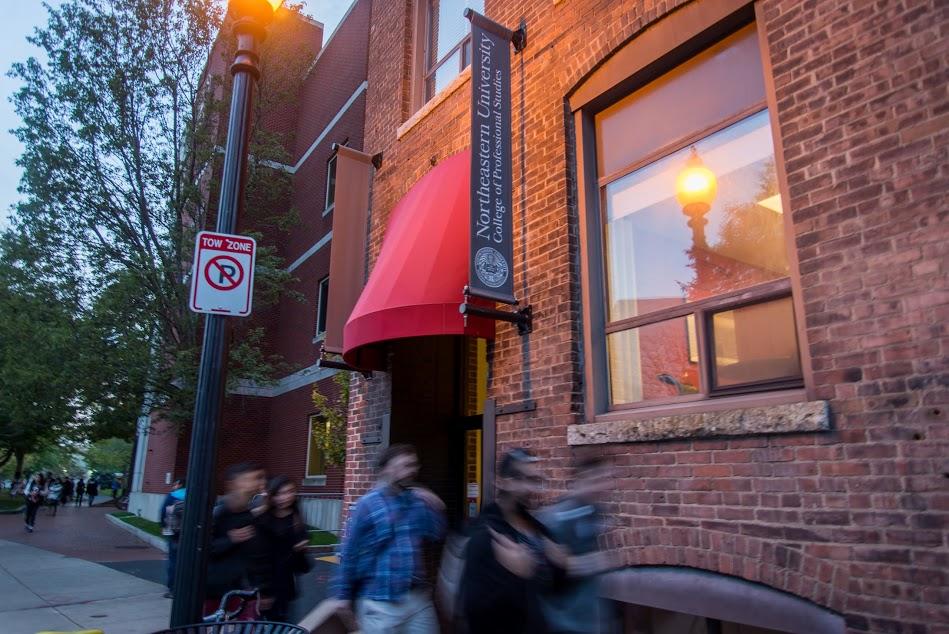By Elise Harmon, news editor
Northeastern University sent out an email Thursday informing students pursuing degrees in elementary education that the program would be cut, surprising undergraduates with dreams of pursuing careers in teaching.
The announcement that the dual psychology-education degree or elementary education minor would no longer be offered to new students came over a year after Northeastern University cancelled a minor in secondary education.
“After many considerations and many conversations, we have decided, effective immediately, to suspend the combined major and the elementary education minor and will no longer accept new candidates into these programs,” Associate Dean of Academic and Faculty Affairs Mya M. Mangawang said in an email sent to students in the dual psychology-education major or in the elementary education minor on Oct. 15.
The letter assured students that those who had already been accepted to the the programs would be allowed to finish their coursework and licensure requirements.
Students who were previously in the secondary education minor that was cancelled in 2014 had to drop the degree in favor of a plus-one year graduate progam.
“I think it’s disappointing that at a university that has such a unique approach to education, that they wouldn’t want to foster future education,” Anika Krause, a third-year English major who had pursued a secondary education minor, said. “A vast majority of our students are so involved with the community, and through the education department,we do so much community service.”
Students in the programs felt the university had given them no indication that the opportunity to obtain an undergraduate-level degree in education would no longer be available.
“Last week was the very first time I’d heard anything about my major and the dual degree being cut,” junior elementary education and psychology student Amber Mangione said in an email to The News. “I had known about the secondary changes and realized that when I brought worries up to the education faculty, advisors and professors, they were very hush-hush about it.”
Holly Van Hare, a third-year English and math major, agreed that the university seemed secretive. Van Hare had pursued the secondary education minor before it was cancelled and replaced with a graduate program.
“I think a big part of it is just being open about what’s going on,” she said. “It’s been previously, ‘Oh, this happened to the secondary program but don’t worry, the elementary education program is still up and running’ and now that’s kind of being taken back.”
Renata Nyul, Northeastern’s assistant vice president of communications, emphasized in an email to The News that students already enrolled in the major would still have the opportunity to finish their degrees and gain their teacher’s licenses.
This was the same thing secondary education minors were told last year when their program was cut.
“Last summer [in June of 2014], we got an email that said ‘Things may change, but don’t worry, you’re still in the minor program,’” Van Hare said. “Then [in August] they said that the program had been cut and we were no longer eligible to get the minor. Instead, they had an alternate program for us to get licensure.”
This alternative is a graduate-school program that will allow students to gain their Master of Arts in Teaching (M.A.T.) in as little as a year after completing their undergraduate degree. Secondary education minors who had their degrees cut will be able to participate in this certification for free. “If I wanted to graduate in four years, I no longer have the option to start working after four years of schooling, so that’s another year that I won’t be paid for work and instead will have to pay housing costs in Boston,” Van Hare, who’s planning on participating in the program, said.
When the secondary education program was cut last year, Krause said, a vast majority of the 20 to 30 students enrolled either decided to drop the minor completely or switch over to the elementary education minor.
“I don’t think this decision will have any effect on the University,” Mangione said. “I spoke to a professor about it briefly and was told that there are ‘so many other schools nearby more focused on education.’ This really struck a chord in me.”
Photo by Scotty Schenck









